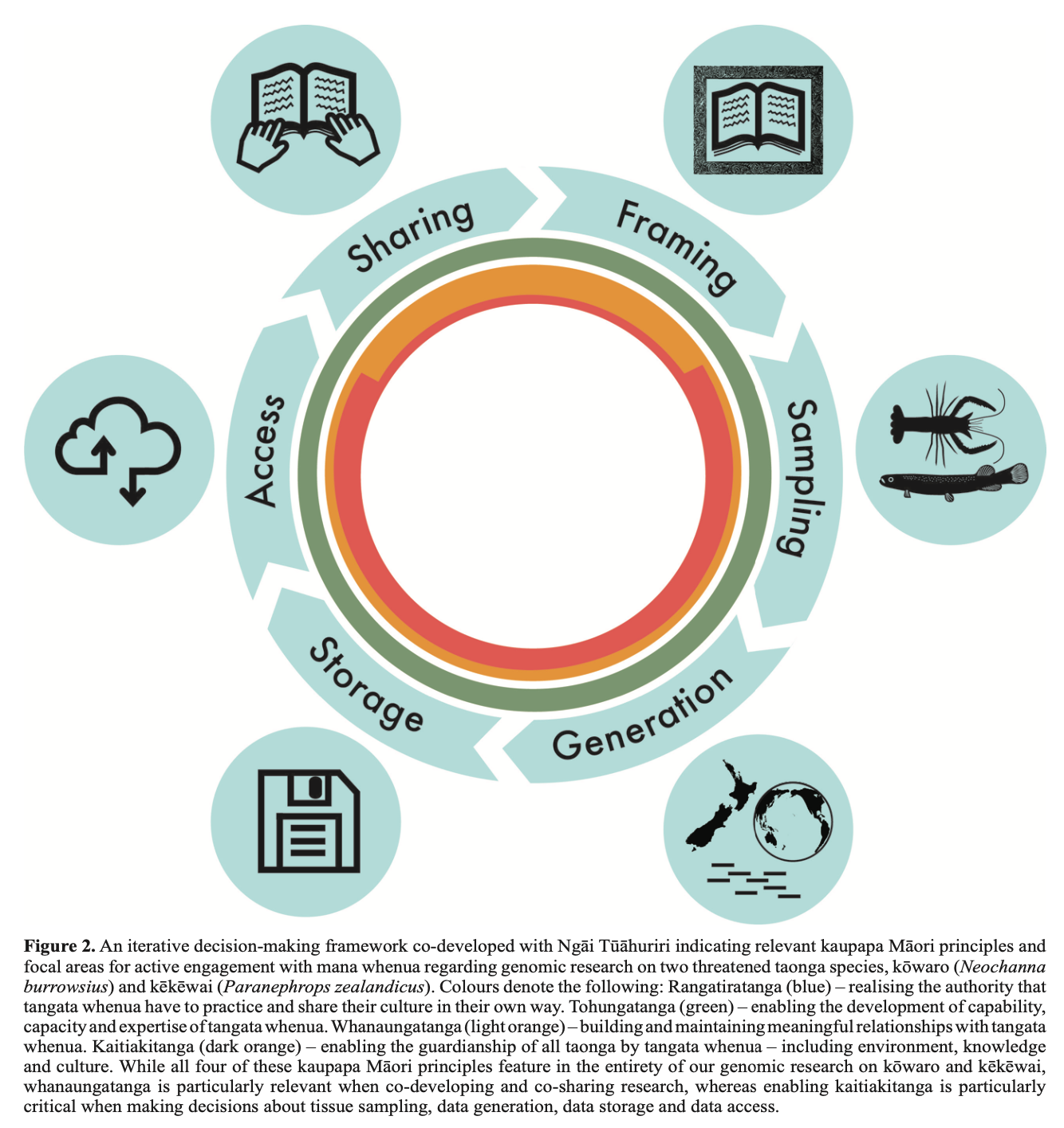
This years SCB Oceania Student publication award has been awarded to Levi Collier-Robinson, for his paper Embedding indigenous principles in genomic research of culturally significant species: a conservation genomics case study published in the New Zealand Journal of Ecology.
Members of the SCBO Board judging the award thought Levi’s approach to embedding Māori principles in genomics research was highly original, well executed, and makes an important contribution to conservation science in our region. The framework presented in his paper could be adapted and applied by conservation scientists seeking to form meaningful collaborative relationships with indigenous communities across Oceania.
Read the paper here and follow Levi on Twitter for more on his research.

Abstract: Indigenous peoples around the world are leading discusions regarding genomic research of humans, and more recently, species of cultural significance, to ensure the ethical and equitable use of DNA. Within a Māori (indigenous people of Aotearoa New Zealand) worldview, genomic data obtained from taonga (treasured) species has whakapapa – generally defined as genealogy, whakapapa layers the contemporary, historical and mythological aspects of bioheritage – thus genomic data obtained from taonga species are taonga in their own right and are best studied using Māori principles. We contend it is the responsibility of researchers working with genomic data from taonga species to move beyond one-off Māori consultation toward building meaningful relationships with relevant Māori communities. Here, we reflect on our experience embedding Māori principles in genomics research as leaders of a BioHeritage National Science Challenge project entitled ‘Characterising adaptive variation in Aotearoa New Zealand’s terrestrial and freshwater biota’. We are co-developing a culturally- responsive evidence-based position statement regarding the benefits and risks of prioritising adaptive potential to build resilience in threatened taonga species, including species destined for customary or commercial harvest. To achieve this, we co-developed a research programme with the local subtribe, Ngāi Tūāhuriri, that integrates Māori knowledge with emerging genomic technologies and extensive ecological data for two taonga species, kōwaro (Canterbury mudfish; Neochanna burrowsius) and kēkēwai (freshwater crayfish; Paranephrops zealandicus). The foundation of our research programme is an iterative decision-making framework that includes tissue sampling as well as data generation, storage and access. Beyond upholding the promises made in The Treaty of Waitangi, we contend the integration of Māori principles in genomics research will enhance the recovery of taonga species and enable the realisation of Māori values.
Collier-Robinson, L., Rayne, A., Rupene, M., Thoms, C., & Steeves, T. 2019. Embedding indigenous principles in genomic research of culturally significant species: a conservation genomics case study. New Zealand Journal of Ecology, Vol. 43, No. 3.
DOI: https://dx.doi.org/10.20417/nzjecol.43.36
